UPSC Daily Current Affairs- 15th January 2024 | Current Affairs & Hindu Analysis: Daily, Weekly & Monthly PDF Download
GS-I
Swami Vivekananda
Subject: History
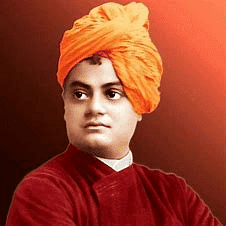
Why in News?
Recently, Prime Minister paid tributes to Swami Vivekananda on his Jayanti.
Background:-
- The Prime Minister, Shri Narendra Modi has paid tributes to Swami Vivekananda on his Jayanti and National Youth Day.
- Shri Modi has also shared a video of his views on Swami Vivekananda.
About Swami Vivekananda:-
- Birth: 12 January 1863.
- Death: 4 July 1902.
- His birthday is observed as National Youth Day.
- Named Narendra Nath Datta, Swami Vivekananda was an Indian monk who is known for his intellectual contributions to the field of religion.
- A chief disciple of Ramakrishna Paramhansa, Vivekananda is known to have introduced Hindu philosophies of Yoga and Vedanta to the Western world.
- He is remembered as the founder of the Ramakrishna Mission and the Ramakrishna Math.
- He pushed for national integration in colonial India, and his famous speech remains the one that he gave in Chicago in 1893 (Parliament of the World Religions).
- In 1984 the Government of India declared that 12 January, the birthday of Swami Vivekananda, will be celebrated as National Youth Day.
- He is known to have introduced the Hindu philosophies of Yoga and Vedanta to the West.
- Netaji Subhas Chandra Bose had called Vivekananda the “maker of modern India.”
- In 1893, he took the name ‘Vivekananda’ after Maharaja Ajit Singh of the Khetri State requested him to do so.
- He preached ‘neo-Vedanta’, an interpretation of Hinduism through a Western lens, and believed in combining spirituality with material progress.
Teachings:-
- Spiritual primacy is the central theme of Vivekananda’s teachings, through which human beings can succeed in every sphere of their lives.
- Three instruments of knowledge that he propounded are: instincts, reason, and inspiration
- Vedantic Humanism
- Religious acceptance was important and not tolerance because tolerance comes out of a superiority complex.
- The most desirable path for self-realisation was the selfless service of man.
- Divinity within ourselves
- Karma Yoga, Bhakti Yoga, Raja Yoga.
Books:-
- Raja Yoga
- Karma Yoga
- Meditation and Its Methods
- Vedanta: Voice of Freedom
- Lectures on Bhagavad Gita
- My India: The India Eternal
- Powers of The Mind
- My Master
- Essentials of Hinduism among many others.
Source: PIB
Mahanadi River Basin
Subject: Geography
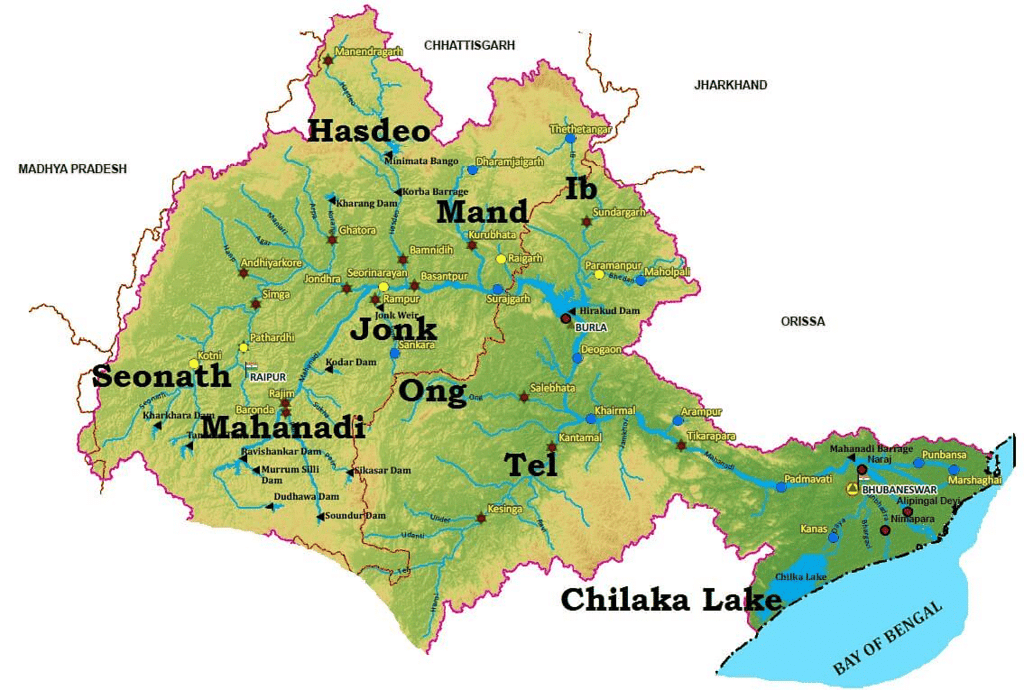
Why in News?
The state-owned Oil and Natural Gas Corporation (ONGC) recently discovered two significant natural gas reserves in the Mahanadi basin block in the Bay of Bengal.
About Mahanadi River Basin:
- It is the 8th largest river basin in the country, with a total catchment area of 139681.51 sq. km, which is nearly 4.28% of the total geographical area of the country.
- The catchment area of the basin extends over major parts of Chhattisgarh and Odisha and comparatively smaller portions of Jharkhand, Maharashtra, and Madhya Pradesh.
- The basin has a maximum length and width of 587 km and 400 km, respectively.
- It is bounded by the Central India hills on the north, by the Eastern Ghats on the south and east, and by the Maikala range on the west.
- Physiographically, the basin can be divided into four regions, namely, the northern plateau, the Eastern Ghats, the coastal plain, and the erosional plains of central table land.
- The first two are hilly regions.
- The coastal plain is the delta area, which is highly fertile.
- The central tableland is the central interior region of the basin, traversed by the river and its tributaries.
- The basin receives about 90% of its rainfall during the monsoon season.
- The major part of the basin is covered with agricultural land, accounting for 54.27% of the total area, and 4.45% of the basin is covered by water bodies.
- The main soil types found in the basin are red and yellow soils.
Key Facts about Mahanadi River:
- It is one of the major east-flowing peninsular rivers in India.
- Origin: The river originates from the Sihawa range of hills in the Dhamtari district of Chhattisgarh state.
- It ranks second to the Godavari River among the peninsular rivers in respect of water potential.
- The total length of the river from its origin to its outfall into Bay of Bengal is 851 km of which 357 km lies in Chhattisgarh and 494 km in Odisha.
- Tributaries: The Seonath, the Hasdeo, the Mand, and the Ib join Mahanadi from left, whereas the Ong, the Tel, and the Jonk join it from right.
- Hirakud Dam: The Hirakud Dam, the world's longest earthen dam (26km), is constructed across the Mahanadi River, about 15 km from Sambalpur in Odisha.
- Chilika Lake: Chilika, named wetland of international importance under the Ramsar Convention, gets 61% of its inland flow from the Mahanadi River system, mainly from its distributaries, Daya and Bhargabi.
Source: Live Mint
Kalaram temple
Subject: History
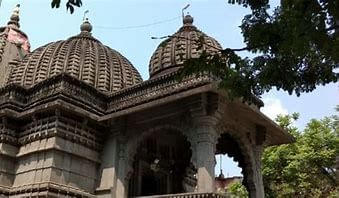
Why in News?
Recently, the Prime Minister of India visited the Kalaram Mandir on the banks of the Godavari in the Panchavati area of Nashik, Maharashtra.
About Kalaram temple:
- The Kalaram temple derives its name from a black statue of the Lord — Kala Ram translates literally to “Black Ram”.
- It was built in 1792 with the efforts of Sardar Rangarao Odhekar.
- It is located on the banks of Godavari in the Panchavati area of the city.
- Features
- The sanctum sanctorum has statues of Ram, Sita, and Lakshman, and a black idol of Hanuman at the main entrance.
- The main temple has 14 steps, which represent the 14 years of Ram’s exile. It has 84 pillars, which represents the cycle of 84 lakh species that one has to complete in order to be born as a human.
Historical Significance
- This temple is the site of a landmark agitation led by Babasaheb Ambedkar demanding temple entry rights for Dalits more than 90 years ago.
- In 1930, B R Ambedkar and the Marathi teacher and social activist Pandurang Sadashiv Sane, known as Sane Guruji, led an agitation to demand access for Dalits to Hindu temples.
- This movement aimed to challenge the oppressive caste norms prevalent during the time.
- During the satyagraha, Ambedkar, along with his 15,000 Dalit followers, peacefully picketed the temple.
Source: Indian Express
GS-II
Centralised Public Grievance Redress and Monitoring System (CPGRAMS)
Subject: Governance
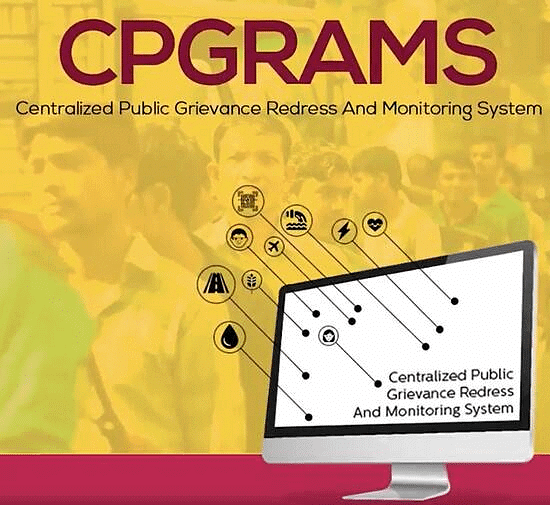
Why in News?
Recently, the 17th Report on States/Union Territories performance on Centralised Public Grievance Redress and Monitoring System (CPGRAMS) for the month of December 2023 was released.
Background:-
- 58,016 PG cases were received by States/UTs in December 2023.
About CPGRAMS:-
- Centralised Public Grievance Redress and Monitoring System (CPGRAMS) is an online platform available to the citizens 24×7 to lodge their grievances to the public authorities on any subject related to service delivery.
- It is an online web-enabled system developed by the National Informatics Centre (Ministry of Electronics & IT [MeitY]), in association with Directorate of Public Grievances (DPG) and Department of Administrative Reforms and Public Grievances (DARPG).
- It was launched by the Department of Administrative Reforms & Public Grievances (DARPG) under the Ministry of Personnel, Public Grievances & Pensions.
- It is a single portal connected to all the Ministries/Departments of Government of India and States.
- Every Ministry and States have role-based access to this system.
- CPGRAMS is also accessible to the citizens through a standalone mobile application downloadable through the Google Play store and a mobile application integrated with UMANG.
- The status of the grievance filed in CPGRAMS can be tracked with the unique registration ID provided at the time of registration of the complainant.
- CPGRAMS also provides an appeal facility to the citizens if they are not satisfied with the resolution by the Grievance Officer.
- After the closure of the grievance if the complainant is not satisfied with the resolution, he/she can provide feedback.
- If the rating is ‘Poor’ the option to file an appeal is enabled.
- The status of the Appeal can also be tracked by the petitioner with the grievance registration number.
- Issues which are not taken up for redress :
- RTI Matters
- Court-related / Subjudice matters
- Religious matters
- Suggestions
Source: PIB
GS-III
 |
Download the notes
UPSC Daily Current Affairs- 15th January 2024
|
Download as PDF |
Diabetes
Subject: Science and Technology

Why in News?
Recently a breakthrough in Diabetes was seen with a study using FDA-Approved Drugs to show regeneration of Insulin Production in 48 Hours.
Background:-
- A new study showed how insulin-producing cells could be regenerated in the pancreas.
- Researchers, led by a team from the Baker Heart and Diabetes Institute in Australia, investigated a new use for drugs already approved by the FDA that target the EZH2 enzyme in human tissue.
About Diabetes:-
- Diabetes mellitus refers to a group of diseases that affect how the body uses blood sugar (glucose).
- Glucose is an important source of energy for the cells that make up the muscles and tissues.
- It is a condition that happens when the blood sugar (glucose) is too high.
- It develops when your pancreas doesn’t make enough insulin or any at all, or when the body isn’t responding to the effects of insulin properly.
- Diabetes affects people of all ages.
- Types of diabetes:-
- There are several types of diabetes. The most common forms include:-
- Type 2 diabetes: With this type, the body doesn’t make enough insulin, and/or the body’s cells don’t respond normally to the insulin (insulin resistance).
- This is the most common type of diabetes.
- Prediabetes: The blood glucose levels are higher than normal but not high enough to be officially diagnosed with Type 2 diabetes.
- Type 1 diabetes: This type is an autoimmune disease in which your immune system attacks and destroys insulin-producing cells in your pancreas for unknown reasons.
- Gestational diabetes: This type develops in some people during pregnancy.
Symptoms:-
- feeling very thirsty
- needing to urinate more often than usual
- blurred vision
- feeling tired
- losing weight unintentionally
Management and Treatment:-
- Blood sugar monitoring.
- Oral diabetes medications.
- Insulin injections.
- Diet management.
- Exercise.
Source: Science Alert
Astra Missile
Subject: Defence and Security
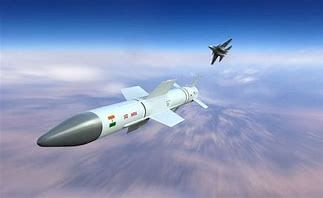
Why in the News?
The Minister of State for Defence recently flagged off the indigenously developed Astra Missiles for supply to the Indian Air Force (IAF) at Bharat Dynamics in Hyderabad.
About Astra Missile:
- Astra is a beyond-visual-range (BVR) air-to-air missile designed to be mounted on fighter aircraft.
- It is indigenously developed by the Defence Research and Development Organisation (DRDO) and manufactured by Bharat Dynamics Ltd. (BDL) for the Indian Air Force (IAF).
- The missile is designed to engage and destroy highly manoeuvring supersonic aircraft.
- It is the best in its class of weapon systems in the world in the category of air-to-air missiles.
- The missile is being developed in multiple variants to meet specific requirements.
- The ASTRA Mk-I Weapon System, integrated with SU-30 Mk-I aircraft, is being inducted into the Indian Air Force (IAF).
Source: Times of India
Operation Sadbhavana by Indian Army
Subject: Defence and Security
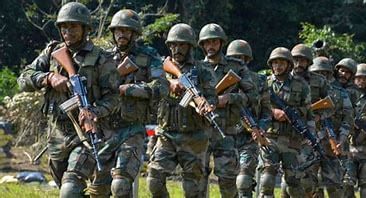
Why in News?
The Indian Army has recently adopted Topa Pir village in Poonch district, Jammu and Kashmir, as a model village under Operation Sadbhavana.
Operation Sadbhavana
- Purpose: Operation Sadbhavana (Goodwill) is an initiative by the Indian Army in Jammu and Kashmir and Ladakh to address the needs of people affected by terrorism, primarily sponsored by Pakistan.
- Welfare Activities: The operation includes running Army Goodwill Schools, infrastructure development projects, and educational tours for children in remote areas.
- Focus on Education: There are seven Army Goodwill Schools under Operation Sadbhavana in the Ladakh Region, aiming to improve the standard of education.
- Objectives: The operation aims to achieve national integration, women empowerment, employment generation, and development activities towards nation-building.
- Collaborative Approach: Projects under Operation Sadbhavana are selected considering local aspirations and in coordination with the local civil administration.
Adoption of Topa Pir Village
- Model Village Initiative: The Army’s adoption of Topa Pir village is a step towards creating a model village, with an emphasis on community development and welfare.
- Recent Incidents: The village gained attention following a controversial incident involving the alleged torture of civilians by the Army, which led to the deaths of three individuals.
- Community Relations: The incident has significantly impacted the relationship between the Army and the local Gujjar and Bakarwal communities, who predominantly inhabit areas near the Line of Control (LoC).
Source: The Hindu
Regulating India’s online gaming industry
Subject: Economics

Why in News?
The article underscores the urgent need for comprehensive regulation in India’s online gaming industry due to emerging market failures causing societal harm and financial losses. It emphasizes the challenges posed by the cross-border nature of the internet and the proliferation of illegal operators, highlighting the necessity for government intervention.
Key Highlights:
- Online gaming in India is a rapidly growing industry poised to contribute significantly to the country’s GDP.
- Market failures, including addiction, mental health issues, frauds, and national security threats, necessitate government intervention.
- The absence of a specialized regulatory authority allows illegal operators to thrive, impacting users and causing financial losses.
- The Information Technology Rules of 2021 were a positive step, but delayed implementation of Self-Regulatory Bodies has impeded progress.
- The UK’s centralized regulator serves as a model for effective oversight in the gaming sector.
Key Challenges:
- Enforcing state-level bans on online gaming is challenging due to the cross-border nature of the internet.
- Differentiating between legitimate gaming platforms and illegal gambling/betting sites is a significant challenge.
- Insufficient regulation contributes to the growth of illegal offshore markets, causing harm to users and significant tax losses.
- Delayed implementation of Self-Regulatory Bodies hampers oversight in the gaming industry.
Key Terms/Phrases:
- Market failures
- Online gaming industry
- Digital regulation
- Self-Regulatory Bodies
- Illegal offshore gambling
- National security concerns
- Player protection requirements
- Shadow economy
- Centralized government regulator
- Harm reduction
Key Quotes:
- “Market failures diminish economic value and erode societal well-being.”
- “The benefits of government intervention must surpass its potential costs.”
- “To protect 373 million gamers in India, who are potentially at risk, it is imperative that the sector is strictly regulated.”
Key Statements:
- “Insufficient regulation in the online gaming industry is leading to market failures and significant societal concerns.”
- “The delayed implementation of Self-Regulatory Bodies is hindering the oversight needed to protect gamers.”
- “Illegal offshore markets are causing harm to users and substantial tax losses, highlighting the urgency of strict regulation.”
Key Examples/References:
- The UK’s centralized government regulator as a model for effective oversight in the gaming sector.
- The Information Technology Rules of 2021 as a commendable step towards regulation in India.
- The growth of illegal offshore markets causing a $45 billion annual tax loss.
Key Facts/Data:
- India has 692 million internet users, making it the second-largest internet user base globally.
- The average daily mobile app usage in India has surged to 4.9 hours, with 82% dedicated to media and entertainment.
- The illegal offshore gambling and betting market receives $100 billion per annum in deposits from India.
Critical Analysis:
Insufficient regulation in the online gaming industry is leading to severe consequences, including societal harm and financial losses. The delayed implementation of regulatory measures further exacerbates the problems, emphasizing the need for urgent action. The comparison with the UK’s regulatory model highlights the potential benefits of strict enforcement and harm reduction strategies.
Way Forward:
- Swift implementation of Self-Regulatory Bodies to ensure effective oversight in the online gaming industry.
- Learning from successful models like the UK’s centralized regulator for efficient regulation and enforcement.
- Collaboration between government and industry stakeholders to establish a robust regulatory framework.
- Public awareness campaigns to differentiate between legitimate gaming platforms and illegal operators.
- Continuous monitoring and adaptation of regulatory measures to address evolving challenges in the online gaming sector.
Source: The Hindu
[Question: 954646]
|
39 videos|4566 docs|979 tests
|
FAQs on UPSC Daily Current Affairs- 15th January 2024 - Current Affairs & Hindu Analysis: Daily, Weekly & Monthly
| 1. What were the contributions of Swami Vivekananda? |  |
| 2. What is the significance of the Mahanadi River Basin? |  |
| 3. What is the historical significance of the Kalaram temple? |  |
| 4. How does the Centralised Public Grievance Redress and Monitoring System (CPGRAMS) work? |  |
| 5. What is Operation Sadbhavana conducted by the Indian Army? |  |


























